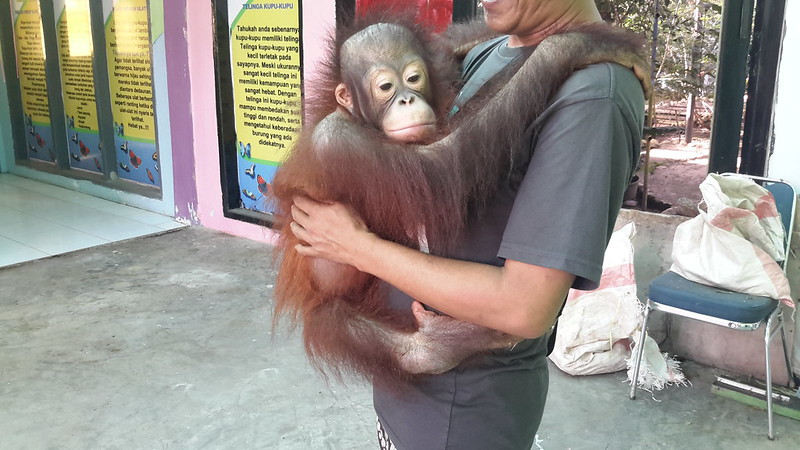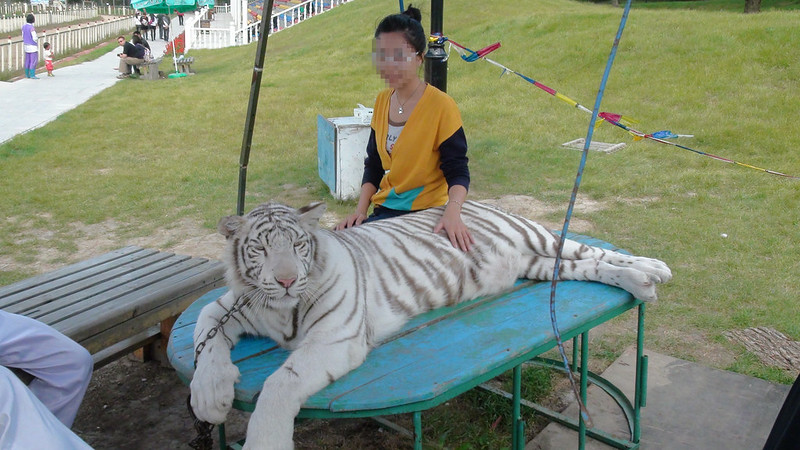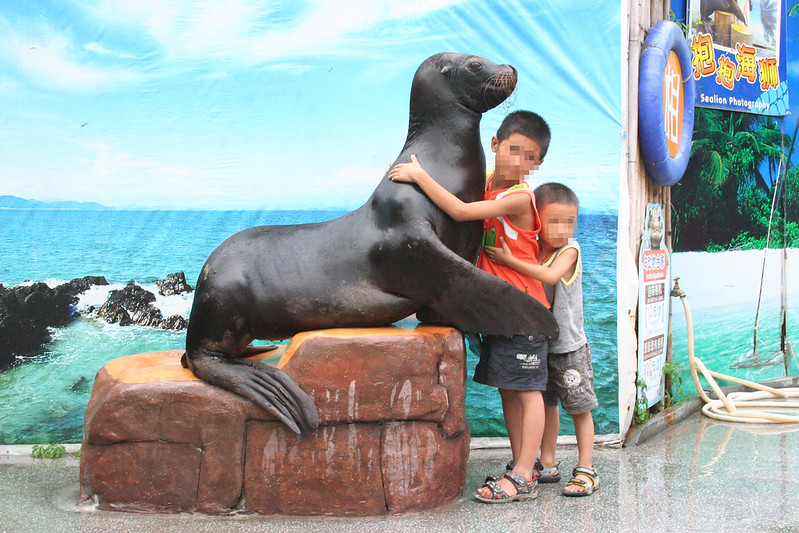Why wild animals can never humanely be used as photo props
24 June 2019

Social media is fuelling global demand for wild animal selfies, but behind the holiday snaps is a lifetime of suffering for the animals and personal danger for the tourists.
The seemingly insatiable desire for likes, clicks and shares on social media means that people are going to extreme lengths for the perfect selfie, often endangering themselves and the animals they so desperately want to capture in that envy-inducing image.
At the same time, companies are coming up with ever inventive ways to use animals to entice tourists. Not only can tourists pay to see dancing bears, monkeys performing tricks and clapping sea lions but they can also visit crocodile farms, walk alongside lions, cuddle bears and kiss cobras.
It is a tragic cycle of exploitation and cruelty which, with greater awareness and by working together, we can stop.
1/ Wild animal selfies fuel poaching of endangered species and cruel breeding programmes
Every time a tourist pays for a selfie with a dancing bear, a performing monkey or wide-eyed tiger cub, they are inadvertently fuelling poaching since many endangered species are taken from the wild to populate circuses, zoos and marine parks.
Breeders also plunder natural habitats to prevent inbreeding of the animals in captivity.
Often animals are snatched from the wild as infants and separated from their parents while they are too young and vulnerable to fend for themselves. Traffickers often kill the parent animals in order to catch the young. Tragically, young, cute animals make better selfies.
2/ Violence and horrific living conditions
Many animals are bred specifically to provide tourists with a photo opportunity, but once they lose their “cuteness” and become too big and boisterous, horror awaits.
For example, “lion walking” experiences have been marred by controversy with reports of lions who have outgrown their use being sold to trophy hunters for so-called canned hunts. This involves keeping the lions in a confined, fenced-in space to enable an easier kill.
Wild animals must have their spirits broken to become as submissive as they need to be for such close and constant human interaction.
One way to do this is to confine them in small, cramped, dark spaces. Another is to chain them up or beat them with sticks and bullhooks until they become compliant.
Since Animals Asia was founded nearly 20 years ago, the organisation has rescued more than 600 bears, mostly from the bile industry - but many also from circuses and zoos where they are forced to perform for visitors. In every single case, the bears have been found in terrible living conditions, often starved, dehydrated, injured or diseased.
The worst zoos, circuses and entertainment parks want to make as much money from their animals as they can, by spending as little as possible on their care. The easiest way to keep costs down is to deny them food, water, proper shelter, medical care and everything else needed to keep animals healthy and happy.
3/ Declawed, defanged, stripped of any power
There are numerous examples of animals such as bears, lions and snakes being mutilated with their claws, teeth and fangs removed to make encounters safer for humans.
These procedures can result in nasty infection if pliers and other crude implements are used, lameness, arthritis and other long-term complications.
Stripping away these animals’ ability to protect themselves from danger makes them more vulnerable than ever and highly unlikely to be released back into the wild.
4/ Unnatural behaviour
Everything about wildlife selfies points to animals being forced to behave in a way that is contrary to their nature. It is humiliating, degrading and heartless.
Infants of any kind need their sleep to be able to grow yet tiger cubs are often kept awake for tourist selfies. If they have sleepy eyes, they are often prodded or poked to manufacture a wide-eyed look that is considered more attractive for photos. When they grow older they are sometimes drugged to keep them docile.
Elephants have remarkably complex social lives and are said to forge extraordinarily strong bonds with family members. Yet in elephant circuses, camps and parks, they are prevented from forming social relationships with each other. Their loneliness can have a huge impact on their psychological wellbeing.
Footage of sun bear Ajib and her cub Marsha, forced to interact constantly with tourists at a facility in Indonesia, shows Ajib constantly sucking her paws. This unnatural behaviour is a tell-tale sign of acute stress with the sucking - and sometimes biting - considered a coping mechanism.
Limb-sucking and self-harm were also apparent in video evidence of Queenie, a macaque forced to perform at a circus within a UNESCO-accredited biosphere reserve in Vietnam. The action revealed how she was struggling to cope with acute stress and constant fear.
5/ Animals are literally are dying for a selfie
Too many animals have died for the sake of a selfie.
In August 2017, a baby dolphin died after being separated from her mother and left stranded in shallow water where she was picked up and passed around by scores of people wanting a picture with her. Some of the photos posted online showed people covering the little dolphin’s blowhole as they held her, suffocating her. The dolphin reportedly died of shock which accelerated cardio-respiratory failure.
In 2016, two peacocks were said to have died of fright in a Chinese wildlife park after visitors grabbed them to take selfies and plucked their feathers, which also caused them to go into shock.
Sloths are naturally quiet animals, needing peace and calm to survive. Once they have been taken from the wild and subjected to repeated human contact, they suffer enormous anxiety and stress which means most of them do not survive for more than six months.
The list goes on.
Every tourist must know that wild animals are not pets and they are not photo props. It is vital for their welfare that they are allowed to express their natural behaviours and are not forced to interact with humans.
As a rule of thumb, any facility allowing such interactions is highly likely to be failing to provide for the welfare of the animals in their care.
If you haven’t already, you can help end the selfies for sun bear Ajib and her young cub Marsha. Sign the petition today and tell the tourist facility in Bali, Indonesia you will never visit while they condone cruelty.
BACK






